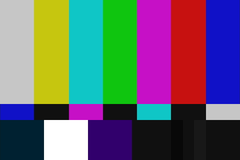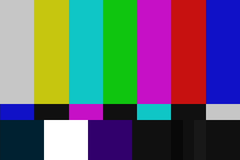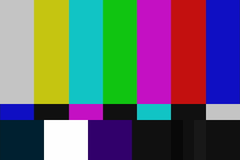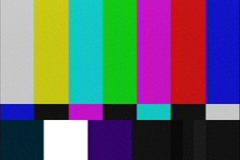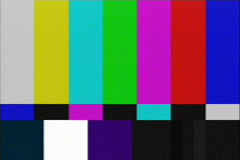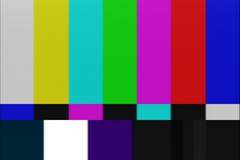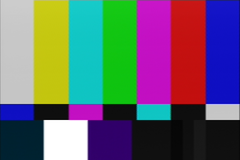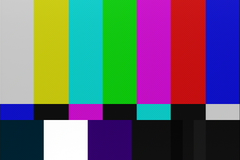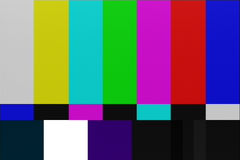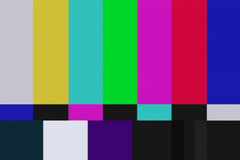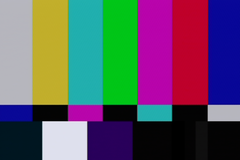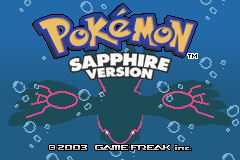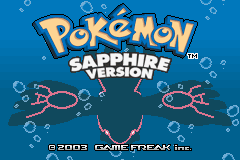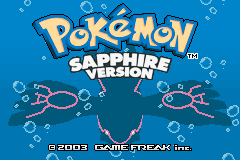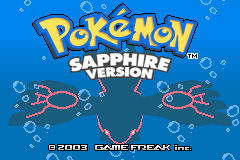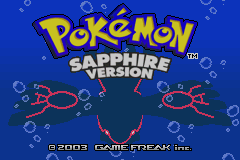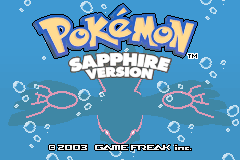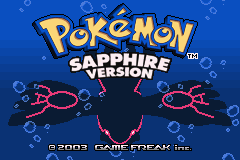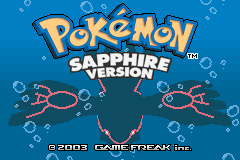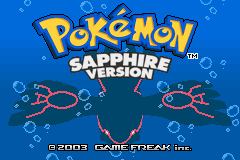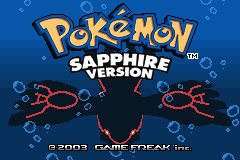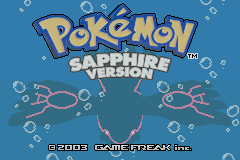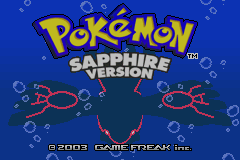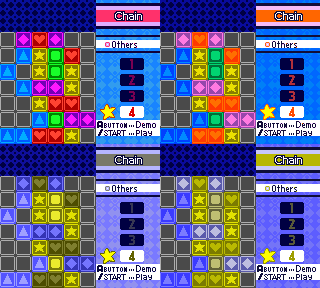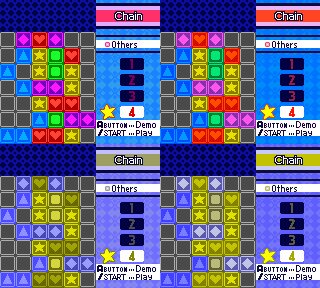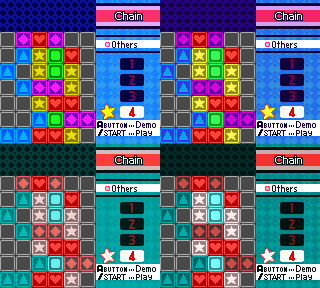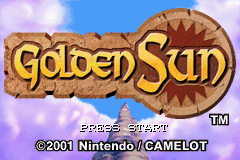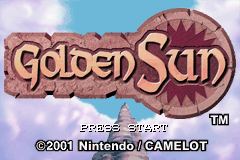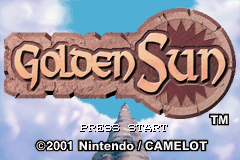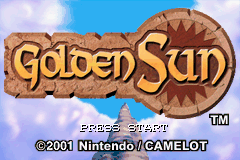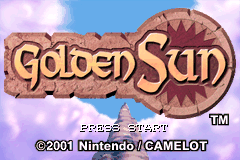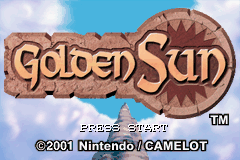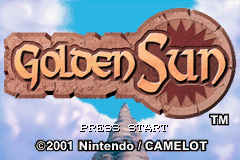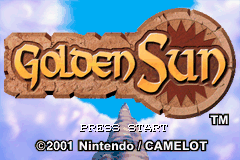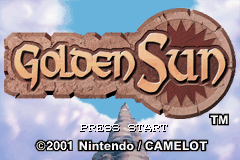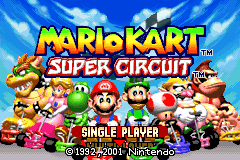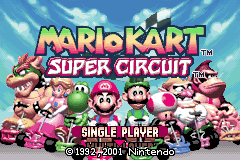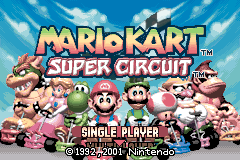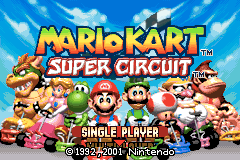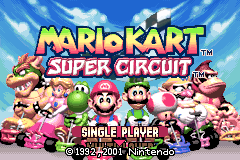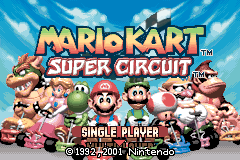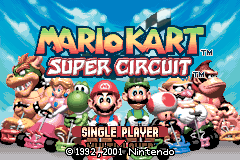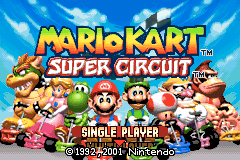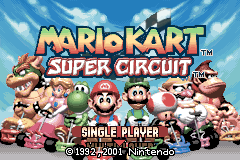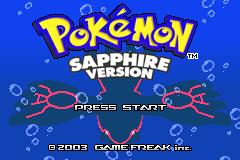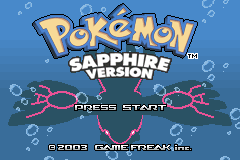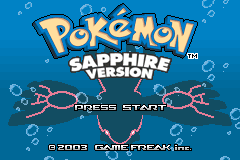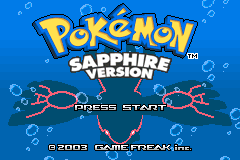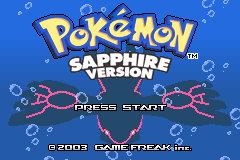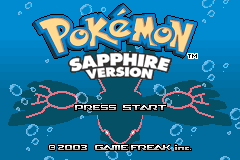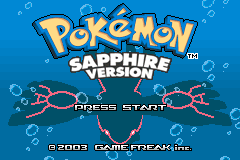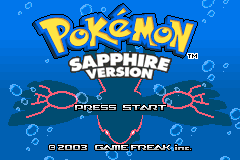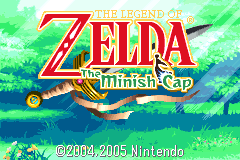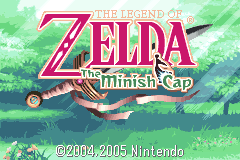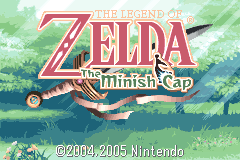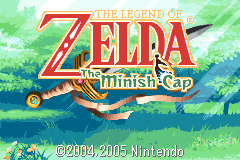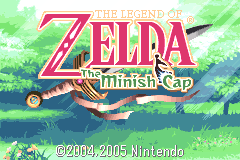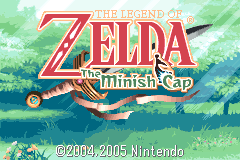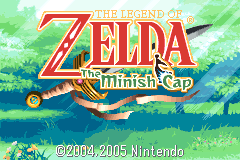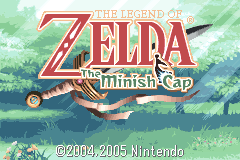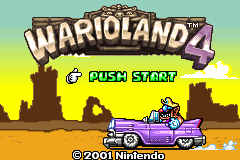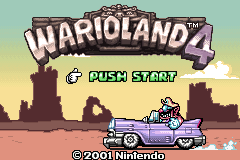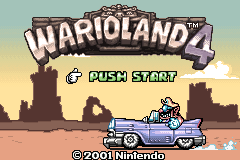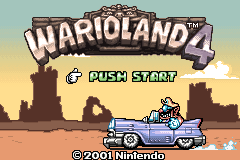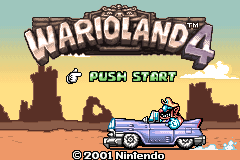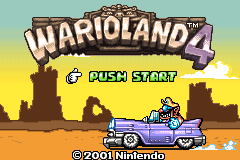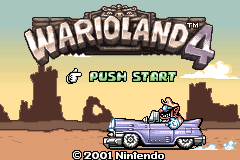Game Boy Interface/Speedrunning Edition
| Information | |
|---|---|
| Author(s) | Extrems |
| Type | Utility |
| Version | Rolling release |
| Licence | All rights reserved |
| Links | |
|
Download main package Download extra package | |
| Website | |
| Discussion | |
| Source | |
| This software must not be sold, neither alone nor as part of a bundle. If you paid for this software or received it as part of a bundle following payment, you have been scammed and should demand your money back immediately. |
| Firmware update notice for GCVideo products. It is strongly recommended to update to GCVideo-DVI v3.0 or later before using this software. GCVideo Lite products are not recommended under any circumstances. |

Formerly the (ultra-)low latency version, Game Boy Interface Speedrunning Edition (GBISR) features a simplified video renderer, and aims to meet the needs of most speedrunning communities.
Controls
Type A (two-handed)
| Nintendo GameCube | Nintendo GameCube Controller | Logitech Speed Force | Nintendo 64 Controller | Action |
|---|---|---|---|---|
| A/B Buttons | A/B Buttons or Accelerator/Brake Pedals | A/B Buttons | A/B Buttons | |
| Z Button | Z Button | Z Button | Select | |
| Y Button | Y Button | Select or Turbo | ||
| X Button | X Button | Start or Turbo | ||
| Start/Pause | Start/Pause | Start | Start | |
| +Control Pad or Control Stick | +Control Pad or Steering Wheel | +Control Pad or Control Stick | +Control Pad | |
| L/R Buttons | L/R Buttons | L/R Buttons | L/R Buttons (Only for Game Boy Advance) | |
| Reset Button | B, X and Start/Pause Buttons | B, X and Start/Pause Buttons | Z, R, A, B and Start Buttons | Power Switch |
| B, X and Start/Pause Buttons (Hold for 0.5 seconds) |
B, X and Start/Pause Buttons (Hold for 0.5 seconds) |
Z, R, A, B and Start Buttons (Hold for 0.5 seconds) |
Exit | |
| Reset Button | X, Y and Start/Pause Buttons (Hold for 1.5 seconds) |
L, R and Start Buttons | Recalibrate controller | |
| X, Y and Start/Pause Buttons (Hold for 3 seconds) |
Swap controls (Only with controller adapter) | |||
| C Stick Down | C Button Down | Toggle input viewer |
| DK Bongos Controller | Active Life Mat Controller | Action |
|---|---|---|
| Bottom Right/Left | Orange Up/Right | A/B Buttons |
| Hand Clap | - Button | Select |
| Start/Pause | + Button | Start |
| Top Right | Blue or Orange Square | +Control Pad Right |
| Top Left | Blue Left | +Control Pad Left |
| Blue Up | +Control Pad Up | |
| Blue or Orange Down | +Control Pad Down |
Type B (one-handed)
| Nintendo GameCube | Nintendo GameCube Controller | Nintendo 64 Controller | Action |
|---|---|---|---|
| A/B Buttons | A/B Buttons | A/B Buttons | |
| Z Button | Z Button | Select | |
| L Button | L Button | Select or Turbo | |
| R Button | R Button | Start or Turbo | |
| Start/Pause | Start | Start | |
| +Control Pad, Control Stick or C Stick | +Control Pad, Control Stick or C Buttons | +Control Pad | |
| Y/X Buttons | L/R Buttons (Only for Game Boy Advance) | ||
| Reset Button | B, X and Start/Pause Buttons | Z, R, A, B and Start Buttons | Power Switch |
| B, X and Start/Pause Buttons (Hold for 0.5 seconds) |
Z, R, A, B and Start Buttons (Hold for 0.5 seconds) |
Exit | |
| Reset Button | X, Y and Start/Pause Buttons (Hold for 1.5 seconds) |
L, R and Start Buttons | Recalibrate controller |
| X, Y and Start/Pause Buttons (Hold for 3 seconds) |
Swap controls (Only with controller adapter) | ||
| L, R, Z and +Control Pad Down | Toggle input viewer |
| DK Bongos Controller | Action |
|---|---|
| Bottom Right/Left | A/B Buttons |
| Hand Clap | Select |
| Start/Pause | Start |
| Top Left/Right | L/R Buttons |
Type C (Super Mario World: Super Mario Advance 2)
| Nintendo GameCube | Nintendo GameCube Controller | Nintendo 64 Controller | Action |
|---|---|---|---|
| B/Y Buttons | A/B Buttons | A/B Buttons | |
| Z Button | Z Button | Select | |
| Start/Pause | Start | Start | |
| +Control Pad or Control Stick | +Control Pad or Control Stick | +Control Pad | |
| X/A Buttons | B/R Buttons or Turbo | ||
| L/R Buttons | L/R Buttons | L/R Buttons (Only for Game Boy Advance) | |
| Reset Button | B, X and Start/Pause Buttons | Z, R, A, B and Start Buttons | Power Switch |
| B, X and Start/Pause Buttons (Hold for 0.5 seconds) |
Z, R, A, B and Start Buttons (Hold for 0.5 seconds) |
Exit | |
| Reset Button | X, Y and Start/Pause Buttons (Hold for 1.5 seconds) |
L, R and Start Buttons | Recalibrate controller |
| X, Y and Start/Pause Buttons (Hold for 3 seconds) |
Swap controls (Only with controller adapter) | ||
| C Stick Down | C Button Down | Toggle input viewer |
Type D (The Legend of Zelda: A Link to the Past)
| Nintendo GameCube | Nintendo GameCube Controller | Nintendo 64 Controller | Action |
|---|---|---|---|
| Y/B Buttons | A/B Buttons | A/B Buttons | |
| Start/Pause | Z Button | Select | |
| R Button | L Button | Select or Turbo | |
| L Button | R Button | Start or Turbo | |
| Z Button | Start | Start | |
| +Control Pad, Control Stick or C Stick | +Control Pad, Control Stick or C Buttons | +Control Pad | |
| X/A Buttons | L/R Buttons (Only for Game Boy Advance) | ||
| Reset Button | B, X and Start/Pause Buttons | Z, R, A, B and Start Buttons | Power Switch |
| B, X and Start/Pause Buttons (Hold for 0.5 seconds) |
Z, R, A, B and Start Buttons (Hold for 0.5 seconds) |
Exit | |
| Reset Button | X, Y and Start/Pause Buttons (Hold for 1.5 seconds) |
L, R and Start Buttons | Recalibrate controller |
| X, Y and Start/Pause Buttons (Hold for 3 seconds) |
Swap controls (Only with controller adapter) | ||
| L, R, Z and +Control Pad Down | Toggle input viewer |
Type E1 (swapped)
| Nintendo GameCube | Nintendo GameCube Controller | Nintendo 64 Controller | Action |
|---|---|---|---|
| B/Y Buttons | A/B Buttons or Turbo | ||
| X/A Buttons | A/B Buttons | A/B Buttons | |
| Z Button | Z Button | Select | |
| Start/Pause | Start | Start | |
| +Control Pad or Control Stick | +Control Pad or Control Stick | +Control Pad | |
| L/R Buttons | L/R Buttons | L/R Buttons (Only for Game Boy Advance) | |
| Reset Button | B, X and Start/Pause Buttons | Z, R, A, B and Start Buttons | Power Switch |
| B, X and Start/Pause Buttons (Hold for 0.5 seconds) |
Z, R, A, B and Start Buttons (Hold for 0.5 seconds) |
Exit | |
| Reset Button | X, Y and Start/Pause Buttons (Hold for 1.5 seconds) |
L, R and Start Buttons | Recalibrate controller |
| X, Y and Start/Pause Buttons (Hold for 3 seconds) |
Swap controls back (Only with controller adapter) | ||
| C Stick Down | C Button Down | Toggle input viewer |
Type E2 (swapped Super Mario World: Super Mario Advance 2)
| Nintendo GameCube | Nintendo GameCube Controller | Nintendo 64 Controller | Action |
|---|---|---|---|
| A/B Buttons | A/B Buttons | A/B Buttons | |
| Z Button | Z Button | Select | |
| Start/Pause | Start | Start | |
| +Control Pad or Control Stick | +Control Pad or Control Stick | +Control Pad | |
| Y/X Buttons | B/R Buttons or Turbo | ||
| L/R Buttons | L/R Buttons | L/R Buttons (Only for Game Boy Advance) | |
| Reset Button | B, X and Start/Pause Buttons | Z, R, A, B and Start Buttons | Power Switch |
| B, X and Start/Pause Buttons (Hold for 0.5 seconds) |
Z, R, A, B and Start Buttons (Hold for 0.5 seconds) |
Exit | |
| Reset Button | X, Y and Start/Pause Buttons (Hold for 1.5 seconds) |
L, R and Start Buttons | Recalibrate controller |
| X, Y and Start/Pause Buttons (Hold for 3 seconds) |
Swap controls back (Only with controller adapter) | ||
| C Stick Down | C Button Down | Toggle input viewer |
Type E3 (swapped The Legend of Zelda: A Link to the Past)
| Nintendo GameCube | Nintendo GameCube Controller | Nintendo 64 Controller | Action |
|---|---|---|---|
| B/A Buttons | A/B Buttons | A/B Buttons | |
| Start/Pause | Z Button | Select | |
| R Button | L Button | Select or Turbo | |
| L Button | R Button | Start or Turbo | |
| Z Button | Start | Start | |
| +Control Pad, Control Stick or C Stick | +Control Pad, Control Stick or C Buttons | +Control Pad | |
| Y/X Buttons | L/R Buttons (Only for Game Boy Advance) | ||
| Reset Button | B, X and Start/Pause Buttons | Z, R, A, B and Start Buttons | Power Switch |
| B, X and Start/Pause Buttons (Hold for 0.5 seconds) |
Z, R, A, B and Start Buttons (Hold for 0.5 seconds) |
Exit | |
| Reset Button | X, Y and Start/Pause Buttons (Hold for 1.5 seconds) |
L, R and Start Buttons | Recalibrate controller |
| X, Y and Start/Pause Buttons (Hold for 3 seconds) |
Swap controls back (Only with controller adapter) | ||
| L, R, Z and +Control Pad Down | Toggle input viewer |
Options
--offset=<x:y>- Set offset (default: 0).
--zoom=<x:y>- Set zoom (default: 2.0).
--rotate=<0-359>- Set rotation (default: 0).
--poll=<0-11>- Set controller polling rate. Use if your third-party controller or controller adapter is malfunctioning.
- Not applicable to Nintendo 64 Controllers using a passive connector adapter.
0: VSync (most compatible) 1: 1000Hz (default) 2: 500Hz 3: 350Hz 4: 300Hz 5: 250Hz 6: 200Hz 7: 150Hz 8: 150Hz 9: 125Hz 10: 125Hz 11: 100Hz
- Note: The polling rate will be doubled or halved in tandem with the refresh rate.
--turbo=<on:off>- Set autofire interval (default: 0).
- When non-zero, duplicate buttons act as turbo A/B Buttons.
--control=<P1[:P2[:P3[:P4]]]>- Set control scheme. The default is the Game Boy Player Start-up Disc's Controller setting (0 or 1).
--control=0:1:2:3Set control type A, B, C, D on controller socket 1, 2, 3, 4.--control=4Set control type E1 on all controller sockets.
- Note: A Game Boy Advance used as a controller is a Nintendo GameCube Controller.
--control-turbo=<bitmask>- Set which duplicate button acts as the turbo modifier key.
0: None (default) 1: A, Select or R Button 2: B, Start or L Button 3: Both
--control-spare=<bitshift>- Set function of L/R Buttons with Game Boy Game Paks.
- Normally used to switch between wide/normal screen mode.
0: None (default) 1: A/B Buttons 2: Select/Start 3: +Control Pad Right/Left 4: +Control Pad Up/Down 5: L/R Buttons
--control-rotate=<0-3>- Set rotation of +Control Pad.
0: 0° (default) 1: 90° clockwise 2: 180° 3: 90° counter-clockwise
--delay-reset=<N>- Set reset delay (default: 73).
--delay-video=<N>- Set video buffering (default: 1). Setting this option to 0 is not recommended.
--movie=<path>,--no-movie- Play input log (default: no).
--movie-record,--no-movie-record- Record input log (default: no).
--overlay=<path>,--no-overlay- Load texture palette for graphic overlays (default: frame-srgb.tpl.gz).
--overlay-id=<ID>- Set texture palette index for graphic overlay. The default is the Game Boy Player Start-up Disc's Frame setting (0 to 19).
--overlay-scale=<x:y>- Set texture scale for graphic overlay (default: auto).
--scaler=<nearest|bilinear|area|box>- Set image scaling filter. Setting this option to nearest is not recommended when using fractional scaling.
nearest: Nearest-neighbor interpolation (fastest) bilinear: Bilinear interpolation area: Sharp bilinear interpolation (default) box: Inverse sharp bilinear interpolation
--palette=<#rgbx,#rgbx,#rgbx,#rgbx>,--palette=<xxxx-xxxx-xxxx>,--no-palette- Apply Super Game Boy color palette (default: no).
--palette=719Set color palette 2-H.--palette=#8000,#AF3F,#FAB7,#FFFF
- Note: Press Left + B while the Game Boy logo is visible for proper application on original Game Boy Game Paks.
--lut3d=<path>,--no-lut3d- Load 32x32x32 lookup table in PNG file format (default: no).
- Overrides
--matrix,--input-gamma,--brightness,--contrast,--saturation,--hueand--blend. --lut3d-order=<rgb|gbr|bgr>- Specify lookup table order (default: gbr).
--profile=<srgb|gambatte|gba|gbasp|gbc|gbi|hicolour|higan|nds|palm|psp|sloop|vba>- Set quick color profile.
- Overrides
--matrix,--input-gamma,--output-gamma,--brightness,--contrast,--saturationand--hue.
srgb: Emulator gambatte: Gambatte / higan / ares gba: Game Boy Advance gbasp: Game Boy Advance SP (AGS-101) gbc: Game Boy Color gbi: Game Boy Interface (2015–2017) hicolour: Gameboy Hi-Colour Convertor higan: higan / ares nds: Nintendo DS palm: Palm Treo 700p psp: PlayStation Portable sloop: Game Boy Advance - Nintendo Switch Online vba: VisualBoyAdvance-M
--matrix=<identity|gambatte|gba|gbasp|gbc|gbi|hicolour|higan|nds|palm|psp|switch|vba>- Set color matrix (default: gbi).
- This translates the RGB color primaries to the standard RGB color space.
identity: Identity matrix gambatte: Gambatte / higan / ares gba: Game Boy Advance (by Pokefan531) gbasp: Game Boy Advance SP (by Pokefan531) gbc: Game Boy Color (by Pokefan531) gbi: Game Boy Interface hicolour: Gameboy Hi-Colour Convertor (by Pokefan531) higan: higan / ares nds: Nintendo DS (by Pokefan531) palm: Palm Treo 700p (by Pokefan531) psp: PlayStation Portable (by Pokefan531) switch: Nintendo Switch - OLED Model (by Pokefan531) vba: VisualBoyAdvance-M (by Pokefan531)
--daltonize=<normal|protan|deutan|tritan>,--anomalize=<normal|protan|deutan|tritan>- Set color blindness compensation and/or simulation (default: normal).
normal: Trichromat protan: Protanope deutan: Deuteranope tritan: Tritanope
--input-gamma=<red[:green[:blue]]>- Set gamma (default: 2.2).
- Overrides
--input-alpha. --input-alpha=<red[:green[:blue]]>- Set alpha for piecewise parametric curve (default: 0.0).
--output-gamma=<value>- Specify screen gamma (default: 2.2).
- Overrides
--output-alpha. --output-alpha=<value>- Specify screen alpha for piecewise parametric curve (default: 0.0).
--gamma=<even[:odd]>- Set gamma correction (default: 1.0).
--brightness=<red[:green[:blue]]>- Set lift (default: 0.0).
--contrast=<red[:green[:blue]]>- Set gain (default: 1.0).
--saturation=<value>- Set color saturation (default: 1.0).
--hue=<0-359>- Set color hue shift (default: 0).
--blend=<0.0-1.0>- Set alpha blending with accumulation buffer (default: 1.0).
--background=<#rrggbb>- Set background color (default: #000000).
--vfilter=<middle[:lower[:upper]]>- Set vertical filter coefficients (default: 1.0).
- Each lines are the sum of line n, n+1 and n-1.
--vfilter=.5:.25:.25Typical vertical low-pass filter.--vfilter=.5:.5:.0:.5:.0:.52:1 downsampling filter.
--volume=<left[:right]>- Set audio gain (default: 0.75).
- Note: GCVideo-DVI v2.4b and earlier reduces volume down to a quarter of this value.
--sound=<[mono|stereo][,digital|analog|original]>- Set sound mode. The default is the Sound Mode system setting (mono or stereo).
mono: Mono downmix stereo: Stereo
- Note: GCVideo-Lite has swapped audio channels.
digital- Use PWM decoder.
analog[=<a0:a1:a2:b1:b2>]- Use 2MHz biquad filter (default). Defaults to a second-order low-pass filter with a cut-off of 10kHz and a quality factor of √2 if not specified.
- This is used to simulate the RLC circuit on the Game Boy Advance's Headphone Jack, providing a treble boost.
original- Use low-pass filter similar to the Game Boy Player Start-up Disc.
--format=<[ntsc|pal|pal-m|ntsc-50|pal-60|custom|custom-m][,offset=<x:y>][,scaled-size=<WxH>][,size=<WxH>]>- Set video format. The default is the Video Mode or Progressive Scan Mode system setting (ntsc, pal-60, pal-m, or custom).
ntsc: NTSC-J pal: PAL-B/G/D/K/I pal-m: PAL-M ntsc-50: NTSC-50 pal-60: PAL-60
- Note: GCVideo-DVI is only designed to support NTSC-J, PAL-B/G/D/K/I and PAL-60.
AVE N-DOL can only output CVBS or Y/C as NTSC-J, PAL-M or NTSC-50.
AVE P-DOL can only output CVBS as PAL-B/G/D/K/I or PAL-60.offset=<x:y>- Set screen position. The default is the Screen Position system setting (-32 to +32).
- Note: Odd positions will cause CB to be shifted right and CR to be shifted left with GCVideo-Lite or GCVideo-DVI v2.4c and earlier.
The screen position is shifted left by 4 pixels with GCVideo-DVI v2.4d and earlier. scaled-size=<WxH>- Set screen size. The default is 704:480 for 60Hz formats and 704:576 for 50Hz formats.
- Note: 3 pixels on the right edge of the screen are blanked out with GCVideo-DVI v2.4d-2 and earlier.
size=<WxH>- Set internal resolution (default: 640:480). The maximum is 640:528.
--scan-mode=<[interlace|quasi-interlace|non-interlace|non-progressive|progressive][,clock2x|no-clock2x][,size2x|no-size2x][,strobe|no-strobe]>- Set scan mode. The default is the Progressive Scan Mode system setting (non-interlace or progressive).
interlace: 15kHz interlaced (480i@60Hz; 576i@50Hz) quasi-interlace: 15kHz segmented frame (480sf@30Hz; 576sf@25Hz) non-interlace: 15kHz progressive (240p@60Hz; 288p@50Hz), line halving non-progressive: 31kHz interlaced (960i@60Hz; 1152i@50Hz), line doubling progressive: 31kHz progressive (480p@60Hz; 576p@50Hz)
clock2x,no-clock2x- Enable 27MHz pixel clock (default: auto). Enabling doubles the refresh rate for
interlacescan modes. Disabling halves the refresh rate forprogressivescan modes. - This depend on a compatible video encoder or transmitter not mangling its input.
size2x,no-size2x- Enable 2× video oversampling (default: no). Enabling halves the refresh rate.
- This depend on a compatible video encoder or transmitter not mangling its input.
strobe,no-strobe- Enable black frame insertion (default: no). Enabling halves the frame rate.
--osd-input[=<x:y>],--no-osd-input- Show input viewer (default: no). Defaults to 0:-64 if not specified.
- The position is relative to the center of the Game Boy screen.
--osd-input=-96:-64Show on top left.--osd-input=96:-64Show on top right.--osd-input=96:64Show on bottom right.--osd-input=-96:64Show on bottom left.
--usb,--no-usb- Enable USB Gecko features (default: yes).
--enhance,--no-enhance- Enable Game Boy Player enhancements (default: no). Enabling this option is not recommended.
Title Feature(s) Drill Dozer Rumble Game Boy Advance Video Series Not compatible Mario & Luigi: Superstar Saga Rumble, reduced contrast Pokémon Pinball: Ruby & Sapphire Rumble Shikakui Atama o Maru Kusuru Advance: Kanji Keisanhen Rumble, restored contrast Shikakui Atama o Maru Kusuru Advance: Kokugo Sansuu Shakai Rikahen Rumble, restored contrast Super Mario Advance 4: Super Mario Bros. 3 Rumble, restored gamma
- Note: Remove any accessory from the External Extension Connector, or the Rumble Feature will not work.
If you're using an EverDrive-GBA, make sure to turn off Quick Boot in the options, or the enhancements may not work. <path>- Load Game Boy Advance multi-bootable ROM. Using this option is not recommended.
- Note: Remove any accessory from the External Extension Connector, or the program will not load.
The e-Reader need to be pulled out slightly from the Game Pak Slot for a program to be loaded and interact with the e-Reader.
Any file path can be relative or absolute.
The working directory is the first, non-empty GBI/ directory found in Memory Card Slot A, Memory Card Slot B, Serial Port 2, or GC Loader.
The device can be specified with the prefix carda:, cardb:, sd:, or dvd:.
Comparisons
Audio quality
Video quality
These results are applicable to Nintendo GameCube software.
Using SSIMULACRA, DSSIM 3.1.0, and FFmpeg 4.4 for SSIM & PSNR, with this reference image.
The analog-to-digital conversion parameters were calibrated for each source and device pair when possible.
This isn't representative of relative signal strength. Sorting by SSIMULACRA provide a fairly accurate ranking.
If you'd like to see additional data or more products tested, please support the author on Patreon.
Blackmagic Intensity Shuttle
This 10-bit YCBCR 4:2:2 capture device is most representative of what you might see on a digital television.
As chroma is shifted right on YPBPR in/out, this was corrected in post-processing. Video and S-Video in/out suffer from internal interference.
-
Nintendo Stereo AV Cable (NTSC-J)
-
Nintendo Stereo AV Cable (PAL-M)
-
Generic S-Video Cable (NTSC-J) [1]
-
Generic S-Video Cable (PAL-M) [1]
-
HD Retrovision SNES Component Cable
-
EON GCHD Mk-II v2.4c.2 + Datel Wii HD Component Cable
-
EON GCHD Mk-II v2.4c.2 + HD Retrovision Wii Component Cable
-
GCVideo-DVI v3.0 and later + Portta HDMI to YPbPr Converter
-
Insurrection Industries Carby Component Cable [2]
-
Nintendo GameCube Component Video Cable
-
GCVideo-DVI v2.4a and earlier [4]
-
GCVideo-DVI v2.4b and later
-
EON GCHD Mk-II v2.4c.2 + HDMI Cable
-
GCVideo-DVI v3.0 and later
| Source | SSIMULACRA | L*a*b* DSSIM | R’G’B’ SSIM | R’G’B’ PSNR | |
|---|---|---|---|---|---|
| CVBS | Nintendo Stereo AV Cable (NTSC-J) | -9.443280 | -17.890431 | 9.109949 | 25.914712 |
| CVBS | Nintendo Stereo AV Cable (PAL-M) | -9.428873 | -17.863037 | 9.302333 | 25.956162 |
| Y/C | Generic S-Video Cable (NTSC-J) | -10.966444 | -21.098313 | 9.563780 | 27.243526 |
| Y/C | Generic S-Video Cable (PAL-M) | -9.879825 | -20.381890 | 8.832792 | 26.735124 |
| RGBCVS | HD Retrovision SNES Component Cable | -12.049184 | -25.395061 | 12.242263 | 30.766373 |
| YPBPR | Bitfunx/Kaico GameCube Component Cable & Retro-Bit Retro Prism Component Cable | -12.979306 | -24.443716 | 11.923594 | 29.313640 |
| YPBPR | EON GCHD Mk-II + Datel Wii HD Component Cable | -11.821744 | -23.767438 | 11.839441 | 30.134315 |
| YPBPR | EON GCHD Mk-II + HD Retrovision Wii Component Cable | -11.769820 | -24.151848 | 11.989788 | 30.125775 |
| YPBPR | EON GCHD Mk-II v2.4c.2 + Datel Wii HD Component Cable | -12.746581 | -25.498166 | 11.946129 | 30.789679 |
| YPBPR | EON GCHD Mk-II v2.4c.2 + HD Retrovision Wii Component Cable | -12.811852 | -26.467251 | 12.092401 | 30.922875 |
| YPBPR | GCVideo-DVI v3.0 and later + Portta HDMI to YPbPr Converter | -12.670721 | -26.209114 | 12.226747 | 31.142571 |
| YPBPR | Insurrection Industries Carby Component Cable | -11.705088 | -24.023763 | 12.298049 | 30.133896 |
| YPBPR | Nintendo GameCube Component Video Cable | -12.860946 | -25.180008 | 12.475396 | 30.409172 |
| TMDS | GCVideo-DVI v2.4a and earlier | -12.332234 | -25.881394 | 13.828852 | 31.589915 |
| TMDS | GCVideo-DVI v2.4b and later | -13.341432 | -27.178640 | 14.350780 | 31.609022 |
| TMDS | EON GCHD Mk-II v2.4c.2 + HDMI Cable | -13.370337 | -27.593075 | 14.096536 | 30.832364 |
| TMDS | GCVideo-DVI v3.0 and later | -14.232523 | -28.390246 | 15.201701 | 32.208178 |
"Can't Link"
Using MS2109.
-
GCVideo-DVI v3.0 and later (MJPG)
-
GCVideo-DVI v3.0 and later (YUY2)
| Source | SSIMULACRA | L*a*b* DSSIM | R’G’B’ SSIM | R’G’B’ PSNR | |
|---|---|---|---|---|---|
| TMDS | GCVideo-DVI v3.0 and later (MJPG) | -11.553397 | -22.054644 | 10.982759 | 28.875378 |
| TMDS | GCVideo-DVI v3.0 and later (YUY2) | -12.175160 | -22.137603 | 11.301652 | 28.853936 |
Datapath VisionRGB
Using AD9887A.
This range of 8-bit RGB 4:4:4 capture cards serve as our reference.
-
HD Retrovision SNES Component Cable 4× Oversampling ADC
-
EON GCHD Mk-II + HD Retrovision Wii Component Cable + [RetroRGB Comp2DVI v2.1] [4× Oversampling ADC] [1]
-
EON GCHD Mk-II v2.4c.2 + Datel Wii HD Component Cable + [RetroRGB Comp2DVI v2.1] [4× Oversampling ADC] [1]
-
EON GCHD Mk-II v2.4c.2 + HD Retrovision Wii Component Cable + [RetroRGB Comp2DVI v2.1] [4× Oversampling ADC] [1]
-
Nintendo GameCube Component Video Cable + [RetroRGB Comp2DVI v2.1]
-
GCVideo-DVI v2.4a and earlier [2]
-
GCVideo-DVI v2.4b and later
-
EON GCHD Mk-II v2.4c.2 + HDMI Cable
-
GCVideo-DVI v3.0 and later
| Source | SSIMULACRA | L*a*b* DSSIM | R’G’B’ SSIM | R’G’B’ PSNR | |
|---|---|---|---|---|---|
| RGBCVS | HD Retrovision SNES Component Cable 4× Oversampling ADC | -13.877310 | -24.976688 | 14.675611 | 31.840076 |
| YPBPR | EON GCHD Mk-II + Datel Wii HD Component Cable | -13.886768 | -28.202696 | 11.996525 | 31.871659 |
| YPBPR | EON GCHD Mk-II + HD Retrovision Wii Component Cable | -13.115460 | -28.421006 | 9.733507 | 31.571932 |
| YPBPR | EON GCHD Mk-II + Datel Wii HD Component Cable 4× Oversampling ADC | -12.785571 | -25.908537 | 14.310351 | 31.523034 |
| YPBPR | EON GCHD Mk-II + HD Retrovision Wii Component Cable 4× Oversampling ADC | -14.006967 | -28.410933 | 13.844768 | 32.270490 |
| YPBPR | EON GCHD Mk-II + Datel Wii HD Component Cable + RetroRGB Comp2DVI v2.1 | -14.121242 | -28.337257 | 13.938489 | 32.246032 |
| YPBPR | EON GCHD Mk-II + HD Retrovision Wii Component Cable + RetroRGB Comp2DVI v2.1 | -13.886076 | -28.358456 | 13.931382 | 32.180113 |
| YPBPR | EON GCHD Mk-II v2.4c.2 + Datel Wii HD Component Cable | -14.916203 | -28.607593 | 13.522171 | 33.765758 |
| YPBPR | EON GCHD Mk-II v2.4c.2 + HD Retrovision Wii Component Cable | -14.559903 | -29.274162 | 10.415137 | 33.530528 |
| YPBPR | EON GCHD Mk-II v2.4c.2 + Datel Wii HD Component Cable 4× Oversampling ADC | -14.347394 | -27.277672 | 14.834726 | 33.419798 |
| YPBPR | EON GCHD Mk-II v2.4c.2 + HD Retrovision Wii Component Cable 4× Oversampling ADC | -16.113684 | -29.259351 | 15.800996 | 34.359395 |
| YPBPR | EON GCHD Mk-II v2.4c.2 + Datel Wii HD Component Cable + RetroRGB Comp2DVI v2.1 | -16.064595 | -29.281634 | 15.561498 | 34.606121 |
| YPBPR | EON GCHD Mk-II v2.4c.2 + HD Retrovision Wii Component Cable + RetroRGB Comp2DVI v2.1 | -15.969469 | -29.337858 | 15.472910 | 34.553406 |
| YPBPR | Nintendo GameCube Component Video Cable | -14.820156 | -28.353505 | 15.292768 | 33.665196 |
| YPBPR | Nintendo GameCube Component Video Cable + RetroRGB Comp2DVI v2.1 | -15.687688 | -28.821513 | 15.181974 | 34.169963 |
| TMDS | GCVideo-DVI v2.4a and earlier | -12.918718 | -26.441514 | 14.897373 | 32.201534 |
| TMDS | GCVideo-DVI v2.4b and later | -14.183042 | -28.337421 | 15.674017 | 32.422744 |
| TMDS | EON GCHD Mk-II v2.4c.2 + HDMI Cable | -16.595645 | -29.309443 | 18.384285 | 34.898211 |
| TMDS | GCVideo-DVI v3.0 and later | -14.217659 | -28.314211 | 15.630625 | 32.150042 |
Hauppauge WinTV-HVR-1850
Using CX23888.
This 8-bit YCBCR 4:2:2 capture card show the advantages of 3D comb filtering.
-
Nintendo RF Modulator (NTSC-J)
-
Nintendo RF Modulator (PAL-M)
-
Nintendo Stereo AV Cable (NTSC-J)
-
Nintendo Stereo AV Cable (PAL-M)
-
Generic S-Video Cable (NTSC-J)
-
Generic S-Video Cable (PAL-M)
Hyperkin 3-in-1 HDTV Cable
-
Nintendo GameCube (NTSC-J)
-
Nintendo GameCube (PAL-M)
| Source | SSIMULACRA | L*a*b* DSSIM | R’G’B’ SSIM | R’G’B’ PSNR | |
|---|---|---|---|---|---|
| Y/C | Nintendo GameCube (NTSC-J) | Not a Number | Not a Number | Not a Number | Not a Number |
| Y/C | Nintendo GameCube (PAL-M) | Not a Number | Not a Number | Not a Number | Not a Number |
Sound emulation
Mega Man Zero 2
Pokémon Sapphire
3D lookup table
Pokémon Sapphire
-
Identity LUT
lutrgb.png -
Gambatte / higan / ares
lutrgb-gambatte.png -
Game Boy Advance
lutrgb-gba.png -
Game Boy Color
lutrgb-gbc.png -
Game Boy Interface (2015–2017)
lutrgb-gbi.png -
Game Boy Player Start-up Disc
lutrgb-gbp.png -
Gameboy Hi-Colour Convertor
lutrgb-hicolour.png -
higan / ares
lutrgb-higan.png -
Nintendo DS
lutrgb-nds.png -
PlayStation Portable
lutrgb-psp.png -
VisualBoyAdvance-M
lutrgb-vba.png -
VisualBoy
lutrgb-vbc.png -
Wii U Virtual Console
lutrgb-wiiu.png
Color blindness
Pokémon Puzzle Challenge
-
Protanopia
-
Deuteranopia
-
Tritanopia
Color matrix
Golden Sun
-
Identity matrix
-
Gambatte / higan / ares
-
Game Boy Advance / Game Boy Color
-
Game Boy Interface
-
higan / ares
-
Nintendo DS
-
Palm Treo 700p
-
PlayStation Portable
-
VisualBoyAdvance-M
Mario Kart: Super Circuit
-
Identity matrix
-
Gambatte / higan / ares
-
Game Boy Advance / Game Boy Color
-
Game Boy Interface
-
higan / ares
-
Nintendo DS
-
Palm Treo 700p
-
PlayStation Portable
-
VisualBoyAdvance-M
Pokémon Sapphire
-
Identity matrix
-
Gambatte / higan / ares
-
Game Boy Advance / Game Boy Color
-
Game Boy Interface
-
higan / ares
-
Nintendo DS
-
Palm Treo 700p
-
PlayStation Portable
-
VisualBoyAdvance-M
The Legend of Zelda: The Minish Cap
-
Identity matrix
-
Gambatte / higan / ares
-
Game Boy Advance / Game Boy Color
-
Game Boy Interface
-
higan / ares
-
Nintendo DS
-
Palm Treo 700p
-
PlayStation Portable
-
VisualBoyAdvance-M
Wario Land 4
-
Identity matrix
-
Gambatte / higan / ares
-
Game Boy Advance / Game Boy Color
-
Game Boy Interface
-
higan / ares
-
Nintendo DS
-
Palm Treo 700p
-
PlayStation Portable
-
VisualBoyAdvance-M
Examples
Color emulation
Game Boy Advance
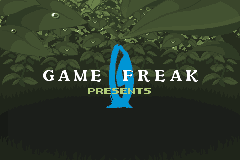
Using a contrast ratio of 250:1.
--matrix=gba --input-gamma=4. --brightness=.25148668593658708166355310093177 --contrast=.74851331406341291833644689906823
Nintendo DS
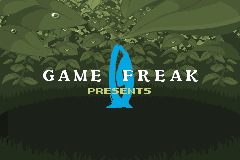
Using a contrast ratio of 600:1.
--matrix=nds --input-gamma=2.2 --brightness=.05460142499154923424989090729934 --contrast=.94539857500845076575010909270066
Palm Treo 700p
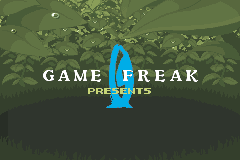
Using a contrast ratio of 75:1.
--matrix=palm --input-gamma=2.2 --brightness=.14050747383584267109301027880364 --contrast=.85949252616415732890698972119636
PlayStation Portable
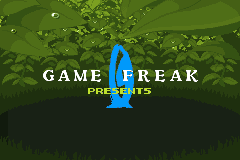
Using a contrast ratio of 750:1.
--matrix=psp --input-gamma=2.2 --brightness=.04933486807278596181719235613556 --contrast=.95066513192721403818280764386444
Color restoration
Mario & Luigi: Superstar Saga
This game reduces contrast when played with Game Boy Player enhancements.
--contrast=1.1
Super Mario Bros. 3: Super Mario Advance 4
This game reduces gamma when played without Game Boy Player enhancements.
--input-gamma=2.8
The Legend of Zelda: Oracle of Ages/Seasons
This game reduces gamma when played on a Game Boy Advance. Due to Game Boy Color limitations, only shadows can be restored perfectly.
--input-gamma=4.
Mimicking
Game Boy Interface (ultra-low latency)
--control-spare=5 --delay-reset=0 --delay-video=0 --no-overlay --scaler=nearest --profile=srgb --sound=digital --format=custom,scaled-size=528x320,size=480x320
Game Boy Player Start-up Disc (60Hz)
Included as gbisr.cli.example.
Transcribed below for reference.
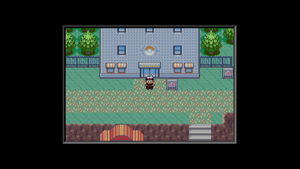
--control-spare=5 --delay-video=2 --profile=srgb --contrast=.78125 --vfilter=.5:.25:.25 --sound=original --format=ntsc,scaled-size=666x448,size=608x448 --scan-mode=interlace --enhance
Game Boy Player Start-up Disc (50Hz)
--control-spare=5 --delay-reset=63 --delay-video=2 --profile=srgb --contrast=.78125 --vfilter=.5:.25:.25 --sound=original --format=pal,scaled-size=670x530,size=608x448 --scan-mode=interlace --enhance
Nintendo 3DS Ambassador Program
F-Zero Maximum Velocity, Fire Emblem: The Sacred Stones, Mario vs. Donkey Kong and The Legend of Zelda: The Minish Cap
--profile=srgb --contrast=.7 --blend=.75
Kirby & The Amazing Mirror
--profile=srgb --contrast=.6 --blend=.5625
Mario Kart: Super Circuit
--profile=srgb --contrast=.65 --blend=.75
Metroid Fusion
--profile=srgb --contrast=.7 --blend=.5625
Wario Land 4 and WarioWare, Inc.: Mega Microgame$
--profile=srgb --contrast=.65 --blend=.5625
Yoshi's Island: Super Mario Advance 3
--profile=srgb --contrast=.6 --blend=.5
Video optimization
Datapath VisionAV & VisionRGB
GCVideo-DVI v3.0 and later
These settings provide a 90° 4× scaled image in a 2:3 640×240p119.455 video output.
In the GCVideo menu under "Other settings", set "Enhanced DVI mode" to On.
In the GCVideo menu under "Advanced settings", set "Chroma Interpolation" to On, "Fix resolution" to Off, and "Digital color format" to YC444.
Included as gbisr-vision.cli, gbisr-vision.dol+cli and gbisr-vision.gci.
Transcribed below for reference.
--zoom=4:2 --rotate=90 --poll=2 --no-overlay --format=custom,offset=0,scaled-size=0x0 --scan-mode=non-interlace,clock2x
- Rotation: 270°
- Color Adjustments
- Brightness: 32
- Contrast: 128
- Colour Domain: YUV (601) Limited
Datapath VisionRGB
Nintendo GameCube Component Video Cable
These settings provide a 90° 4× scaled image in a 3:4 240p119.455 (27MHz÷866÷261) video output.
Included as gbisr-vision.cli, gbisr-vision.dol+cli and gbisr-vision.gci.
Transcribed below for reference.
--zoom=4:2 --rotate=90 --poll=2 --no-overlay --format=custom,offset=0,scaled-size=0x0 --scan-mode=non-interlace,clock2x
- Resolution and Refresh
- Width: 320
- Height: 240
- Vertical Refresh: 119.45
- Video Adjustments
- Horizontal Position: 85
- Horizontal Size: 433
- Phase: 27
- Vertical Position: 18
- Black Level: 8
- Cropping
- Top: 0
- Left: 0
- Width: 320
- Height: 240
- Color Adjustments
- Brightness: 32
- Contrast: 128
- Colour Domain: YUV (601)
- Colour Balance
- All Colors
- Brightness: 32
- Contrast: 128
- Red
- Brightness: 158
- Contrast: 158
- Green
- Brightness: 174
- Contrast: 142
- Blue
- Brightness: 150
- Contrast: 128
- All Colors
- Rotation: 270°
Open Source Scan Converter
These settings provide a 1× scaled image in a 3:2 240p59.7276 (13.5MHz÷866÷261) video output. Refer to FirebrandX for Open Source Scan Converter configuration.
Included as gbisr-ossc.cli, gbisr-ossc.dol+cli and gbisr-ossc.gci.
Transcribed below for reference.
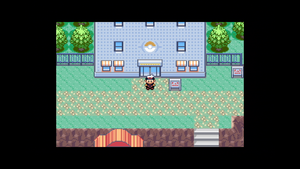
--vfilter=.5:.5:.0:.5:.0:.5 --format=custom,offset=0,scaled-size=0x0 --scan-mode=non-interlace
Important: Misuse will result in the wrong aspect ratio. These settings are mutually exclusive with a secondary display.
RetroTINK-4K
These settings provide a 90° 4× scaled image in a 3:4 240p119.455 (27MHz÷866÷261) video output.
If you're using GCVideo-DVI, under "Advanced settings", set "Fix resolution" to Off and "Digital color format" to YC422.
Included as gbisr-vision.cli, gbisr-vision.dol+cli and gbisr-vision.gci.
Transcribed below for reference.
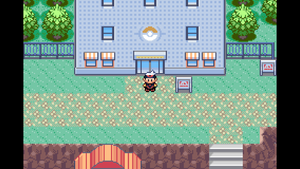
--zoom=4:2 --rotate=90 --poll=2 --no-overlay --format=custom,offset=0,scaled-size=0x0 --scan-mode=non-interlace,clock2x
In the RT4K menu under "Advanced Settings", "Scaling/Crop Setup" and "Input Crop", set "Left Trim" to +4, "Right Trim" to -4 and "RoTATE (Beta)" to 90 Deg Left.
In the RT4K menu under "Advanced Settings", "Scaling/Crop Setup" and "Scaler", set "Aspect Correction" to 1:1 (Sq. Pixel), "Scaling Mode" to Free-Form and "Hori. Factor" to 6.750x.
In the RT4K menu under "Advanced Settings", "Image Processing" and "Gamma/Linear Light/HDR", set "Input Factor" to 2.2 and "Output Factor" to match the display (if unknown, assume 2.2 for PC and 2.4 for TV).
In the RT4K menu under "Advanced Settings", "HDMI Receiver Setup" and "Input Decimation", set "Input Pixels" to 4 (Output: 480) and "Initial Phase" to 3 of 4.
In the RT4K menu under "Advanced Settings", "HDMI Receiver Setup" and "Colorspace", set "4:2:2 Upsampler" to Linear and "Input Range" to Auto.
RetroTINK-5X Pro
These settings provide a 1× scaled image in a 3:2 240p59.7387 (13.5MHz÷856÷264) video output.
Included as gbisr-xrgb.cli, gbisr-xrgb.dol+cli and gbisr-xrgb.gci.
Transcribed below for reference.
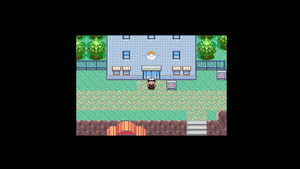
--vfilter=.5:.5:.0:.5:.0:.5 --format=custom-m,offset=0,scaled-size=0x0 --scan-mode=non-interlace
Important: Misuse will result in the wrong aspect ratio. These settings are mutually exclusive with a secondary display.
In the RT5X menu, set "Output Res." to 1080p (UNDER), "H. Sampling" to Generic 4:3, "Interpolation" to Sharp, and "Video LPF" to Light.
XRGB-mini Framemeister
These settings provide a 1× scaled image in a 3:2 240p59.7387 (13.5MHz÷856÷264) video output. Refer to FirebrandX for XRGB-mini Framemeister configuration.
Included as gbisr-xrgb.cli, gbisr-xrgb.dol+cli and gbisr-xrgb.gci.
Transcribed below for reference.
--vfilter=.5:.5:.0:.5:.0:.5 --format=custom-m,offset=0,scaled-size=0x0 --scan-mode=non-interlace
Important: Misuse will result in the wrong aspect ratio. These settings are mutually exclusive with a secondary display.
Computer monitors (Liquid-crystal display)
These settings provide a 2× scaled image in a 4:3 640×480p59.7276 video output.
In the GCVideo menu under "Advanced settings", set "Chroma Interpolation" to On, "Fix resolution" to Off, and "Digital color format" to RGB-F.
--format=custom,offset=0,scaled-size=0x0 --scan-mode=progressive
High-definition televisions
GCVideo-DVI
These settings provide a 3× scaled image, line doubled in a 16:9 720×960i59.7188 video output.
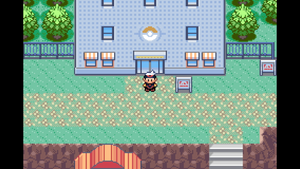
--zoom=2.53125:3 --format=custom,offset=+2:-2,scaled-size=0x0 --scan-mode=non-progressive
Change the Aspect Ratio on the television to 16:9.
To improve the picture further, in the GCVideo menu under "Other settings", try setting "Enhanced DVI mode" to Off. You will lose embedded digital audio.
Labeling the input on the television as a PC may also work.
These settings provide a 3× scaled image in a 16:9 720×480p59.7276 video output.
Included as gbisr-direct-hdmi.cli, gbisr-direct-hdmi.dol+cli and gbisr-direct-hdmi.gci.
Transcribed below for reference.
--zoom=2.53125:3 --format=custom,offset=0,scaled-size=0x0 --scan-mode=progressive
Change the Aspect Ratio on the television to 16:9.
Video output
120Hz black frame insertion (legacy)
--poll=2 --vfilter=.5:.5:.0:.0 --scan-mode=non-interlace,clock2x
480p hybrid scanlines
--overlay=frame.tpl.gz --gamma=2.2:1. --scan-mode=progressive
480p simple scanlines
--vfilter=.5:.5:.0:.0 --scan-mode=progressive
Video scaling
4:3 fullscreen (Game Boy Advance)
--zoom=2.375 --vfilter=.625:.1875:.1875 --scan-mode=interlace
--zoom=2.375 --scan-mode=progressive
4:3 fullscreen (Game Boy Color)
--zoom=3 --vfilter=.5:.25:.25 --scan-mode=interlace
--zoom=3 --vfilter=.5:.5:.0:.5:.0:.5 --scan-mode=non-interlace
--zoom=3 --scan-mode=progressive
16:9 fullscreen
--zoom=2.25:3 --scan-mode=progressive
FAQs
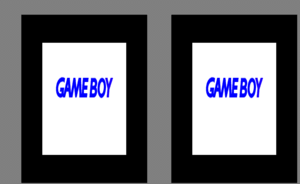
How do I change Game Paks?
- Hold the Reset Button.
- Slide the Game Pak Ejector.
- Insert a Game Pak into the Game Pak Slot.
- Release the Reset Button.
Can I play Game Boy Advance Video?
Yes. You can do so by disabling Game Boy Player enhancements (--no-enhance, or "Rumble: No" in Swiss), or holding a direction while the Game Boy Player logo is visible.
What is the default video output?
- Interlaced Scan Mode: 1× in 4:3 720×240p59.8261 (reported by GCVideo-DVI as 704x240p60)
- Progressive Scan Mode: 2× in 4:3 720×480p59.7276 (reported by GCVideo-DVI as 704x480p60)
Why am I seeing a double split image?
Either progressive scan mode is enabled or, if using GCVideo-DVI, line doubling is by default.
If line doubling is at fault, the picture may also be scrolling with a slant.
Why is my AV to HDMI converter cycling through video standards?
It's confused by the PAL-60 composite video signal being output by your PAL console.
As a workaround, you can set 50Hz Mode (--format=pal, or "Video Format: PAL" in Swiss). This has no effect on the game speed, but will appear stuttery.
Why is the picture blown out on my PAL console?
This is the result of using a cable intended for a NTSC console, typically aftermarket, on a PAL console.
Back when the AV Multi Out was first introduced, the PAL region had some passive components moved out of the system and into the cable.
As a workaround, you can halve vertical filter coefficients (--vfilter=.5). Using this workaround is not recommended on the long term.
Why is the input viewer barely visible on my capture?
If the input viewer has no discernible shape on black or white backgrounds, this is caused by a configuration issue.
If you're using analog video, set the video standard as "NTSC_M_J" rather than "NTSC_M" in the filter properties.
If you're using digital video, set the color range to full rather than partial. If this doesn't work, in the GCVideo menu under "Other settings", set "RGB Limited Range" to On.
How do I verify my Game Boy Advance ROM?
Original, counterfeit or reproduction cartridge
- Remove any accessory from the External Extension Connector.
- Hold Start + Select while the Game Boy logo is visible.
- Wait until the checksum is computed.
- Compare with No-Intro's DAT-o-MATIC.
- Press any button to continue.
EverDrive-GBA
- Turn off Quick Boot.
- Select the ROM file.
- Remove any accessory from the External Extension Connector.
- Hold Start + Select while the Game Boy logo is visible.
- Wait until the checksum is computed.
- Compare with No-Intro's DAT-o-MATIC.
- Press any button to continue.
EZ-Flash Omega
- Select the ROM file.
- Press L + A on Clean Boot.
- Remove any accessory from the External Extension Connector.
- Hold Start + Select while the Game Boy logo is visible.
- Wait until the checksum is computed.
- Compare with No-Intro's DAT-o-MATIC.
- Press any button to continue.
How do I re-enable the dumping utility?
Pass default.mb.gz as command-line argument.
Changelog
October, 2023
- Added +Control Pad rotation.
- Updated color matrices by Pokefan531.
July–September, 2023
- Added Memory Expansion Pak support.
- Updated GBA ROM checksummer.
- Improved GC Loader write support.
February, 2023
- Added Sloop color profile.
- Added piecewise parametric curve.
- Added turbo A/B Buttons.
- Changed saturation to use luma coefficients from video color space.
- Changed L/R Buttons filtering to remapping.
- Fixed polling rate in various video modes.
October–November, 2022
- Added black frame insertion.
- Updated GBA ROM checksummer.
July, 2022
- Added Gambatte and higan color profiles.
- Updated GBA ROM checksummer.
- Fixed issue with GC Loader and IPL replacements.
May–June, 2022
- Added direct color palette setting.
- Added turbo button.
- Updated GBA ROM checksummer.
- Improved SD card compatibility.
- Changed reset combo to exit on hold.
- Relaxed U+D/L+R cancelling.
- Fixed minor issues.
January, 2022
- Added color blindness filters.
- Added L/R Buttons filtering control.
December, 2021
- Added hue/saturation controls.
- Updated GBA-as-GC controller.
- Enabled input viewer to be out of bounds.
November, 2021
- Added quick color profiles.
- Updated color matrices by Pokefan531.
- Updated 3D LUTs by Pokefan531.
- Updated GBA ROM checksummer.
- Fixed issues with GC Loader.
August, 2021
- Disabled GBC widescreen mode.
June, 2021
- Added GC Loader 2.0.0 write support.
- Improved GBA anti-sleep mode.
- Fixed hang in AGB Aging Cartridge.
February–April, 2021
- Added control type E² and E³.
- Updated GBA-as-GC controller.
January, 2021
- Added all devices search for GBI directory.
- Updated GBA-as-GC controller.
- Improved GBA multiboot support.
December, 2020
- Added return to loader support.
- Updated color matrices by Pokefan531.
- Updated 3D LUTs by Pokefan531.
- Improved system stability.
- Improved SD card compatibility.
- Changed default video format to avoid PAL-M with digital AV.
- Changed default 3D LUT order to GBR.
May–June, 2020
- Added control type E¹.
- Added disc spin-down.
- Added GC Loader read-only support.
April, 2020
- Changed default color matrix to GBI's original.
- Changed default sound mode to analog.
- Fixed Game Boy Player settings validation.
January–March, 2020
- Improved SD card compatibility.
- Reduced reset delay.
October, 2019
- Added N64 Controller support.
- Added GBA anti-sleep mode.
- Added subfolder search for GBI directory.
August–September, 2019
- Added Game Boy Player settings validation.
- Fixed default SD card with bad program name.
July, 2019
- Added SD2SP2 support.
- Fixed hang with no SD card inserted.
- Fixed hang upon SD card reinsertion.
June, 2019
- Improved video rendering.
- Renamed oversample scaler to area.
- Changed default scaler to area.
May, 2019
- Added GBA ROM checksummer.
- Added 960i and 1152i video modes.
April, 2019
- Fixed fade with background color set.
- Fixed a power issue.
- Enabled USB Gecko standard output.
March, 2019
- Updated color matrices by Pokefan531.
- Updated 3D LUTs by Pokefan531.
- Fixed Super Game Boy password order.
- Fixed NTSC 50 composite video.
August, 2018
- Updated color matrices by Pokefan531.
- Updated 3D LUTs by Pokefan531.
July, 2018
- Updated GBA-as-GC controller.
- Disabled component video DAC oversampling.
June, 2018
- Added analog sound emulation.
- Added Custom-M video format.
- Added Custom interlaced video modes.
- Merged vertical filter controls.
- Changed brightness/contrast controls to match BT.1886.
- Fixed some audio bugs.
- Enabled progressive scan in more cases to prevent display issues.
May, 2018
- Added Super Game Boy color palette setting.
- Changed scan mode semantics.
- Fixed Game Boy Player advertisement.
- Fixed rumble protocol handshake.
April, 2018
- Added movie recording/playback.
- Updated GBA-as-GC controller.
March, 2018
- Added control swapping for SNES Controllers.
- Added framebuffer size/offset setting.
- Replaced sample aspect ratio with scaled size.
- Improved per-field filtering in single-buffered mode.
- Improved multiboot implementation.
- Improved Game Boy sound quality.
- Improved audio rendering.
- Reduced audio latency.
- Fixed SD card compatibility.
- Fixed multiboot to rumble protocol transition.
- Disabled default multiboot.
February, 2018
- Added background color setting.
- Added video buffering setting.
- Added input viewer.
- Added color matrix from Gambatte.
- Added mono sound mode.
- Added 3D LUT auto-generation.
- Added GBR/BGR LUT order support.
- Added per-field gamma correction control.
- Changed some argument semantics.
- Fixed per-field settings with default video mode.
- Fixed wiiload autoboot with tiny GBA multiboot ROMs.
- Disabled machine checks.
January, 2018
- Updated 3D LUTs by Pokefan531.
- Improved Game Boy Player driver.
- Changed default component video modes.
- Tweaked control type C.
September, 2017
- Added overlay scale setting.
- Added Logitech Speed Force support.
- Added Active Life Mat support.
- Improved Game Boy Player driver.
- Changed zoom scale.
- Changed wiiload server to accept oversized DOLs.
- Fixed one random kernel crash.
- Fixed scaling without a 3D LUT.
August, 2017
- Added DK Bongos support.
- Adapted control type C for Super Mario World: Super Mario Advance 2.
- Added control type D for The Legend of Zelda: A Link to the Past.
- Added per-field vertical filter control.
- Added PNG 3D LUT support.
- Added LUTs by Pokefan531.
- Added LUTs from the 3DS Virtual Console.
- Improved Game Boy Player driver.
July, 2017
- Added CLI append support.
- Updated GBA-as-GC controller.
- Changed reset combo behavior.
June, 2017
- Added zoom & rotate.
- Added reset delay.
- Added reset combo.
April, 2017
- Added component video DAC oversampling.
- Added reset fade effect.
- Added TPL overlay support.
March, 2017
- Added rumble, disabled by default.
- Added USB Gecko wiiload server.
- Added Xboo Communicator.
February, 2017
- Added volume control.
- Added per-channel settings where possible.
- Changed volume to 75% to mitigate clipping.
November, 2016
- Updated GBA-as-GC controller.
September, 2016
- Added video options.
- Added control schemes.
- Added polling rate setting.
May, 2016
- Updated GBA-as-GC controller.
- Improved Game Boy Player driver.
- Fixed WaveBird Controllers.
April, 2016
- Replaced GBA-as-controller with GBA-as-GC controller.
March, 2016
- Added U+D/L+R cancelling.
- Added GBA-as-controller support.
- Recognized a half press of the analog triggers.
August, 2015
- Added executable compression.
- Added memory card distribution files.
- Reduced coil whine.
July, 2015
- Fixed Game Boy Player detection.
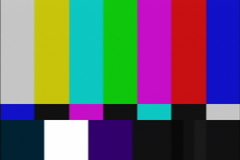
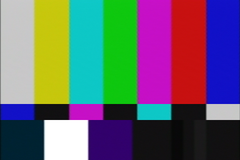
![Generic S-Video Cable (NTSC-J) [1]](/wiki/images/thumb/3/32/GBISR_ADV7180_S-Video_NTSC.png/240px-GBISR_ADV7180_S-Video_NTSC.png)
![Generic S-Video Cable (PAL-M) [1]](/wiki/images/thumb/6/68/GBISR_ADV7180_S-Video_PAL-M.png/240px-GBISR_ADV7180_S-Video_PAL-M.png)
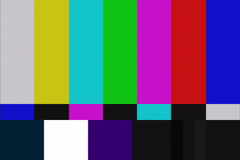
![Bitfunx/Kaico GameCube Component Cable & Retro-Bit Retro Prism Component Cable [2][3]](/wiki/images/thumb/c/ce/GBISR_ADV7604_Bitfunx_Component.png/240px-GBISR_ADV7604_Bitfunx_Component.png)
![EON GCHD Mk-II + Datel Wii HD Component Cable [2]](/wiki/images/thumb/9/9c/GBISR_ADV7604_GCHD_Mk-II_YUV.png/240px-GBISR_ADV7604_GCHD_Mk-II_YUV.png)
![EON GCHD Mk-II + HD Retrovision Wii Component Cable [2]](/wiki/images/thumb/8/82/GBISR_ADV7604_GCHD_Mk-II_YUV_%282%29.png/240px-GBISR_ADV7604_GCHD_Mk-II_YUV_%282%29.png)
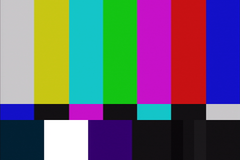
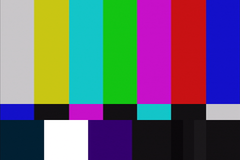
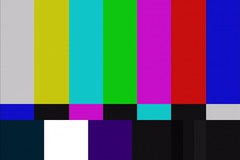
![Insurrection Industries Carby Component Cable [2]](/wiki/images/thumb/6/62/GBISR_ADV7604_Carby_Component.png/240px-GBISR_ADV7604_Carby_Component.png)
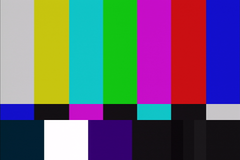
![GCVideo-DVI v2.4a and earlier [4]](/wiki/images/thumb/e/ea/GBISR_ADV7604_GCHD.png/240px-GBISR_ADV7604_GCHD.png)
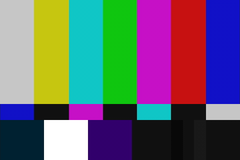
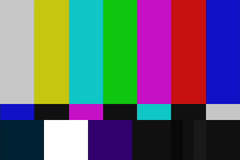
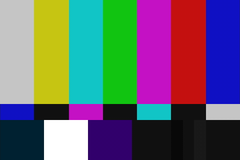
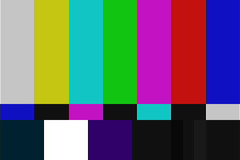

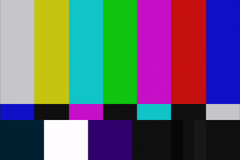
![EON GCHD Mk-II + Datel Wii HD Component Cable + [RetroRGB Comp2DVI v2.1] [4× Oversampling ADC] [1]](/wiki/images/thumb/f/fb/GBISR_AD9887A_GCHD_Mk-II_YUV.png/240px-GBISR_AD9887A_GCHD_Mk-II_YUV.png)
![EON GCHD Mk-II + HD Retrovision Wii Component Cable + [RetroRGB Comp2DVI v2.1] [4× Oversampling ADC] [1]](/wiki/images/thumb/0/0d/GBISR_AD9887A_GCHD_Mk-II_YUV_%282%29.png/240px-GBISR_AD9887A_GCHD_Mk-II_YUV_%282%29.png)
![EON GCHD Mk-II v2.4c.2 + Datel Wii HD Component Cable + [RetroRGB Comp2DVI v2.1] [4× Oversampling ADC] [1]](/wiki/images/thumb/4/4e/GBISR_AD9887A_GCHD_Mk-II_v2.4c.2_YUV.png/240px-GBISR_AD9887A_GCHD_Mk-II_v2.4c.2_YUV.png)
![EON GCHD Mk-II v2.4c.2 + HD Retrovision Wii Component Cable + [RetroRGB Comp2DVI v2.1] [4× Oversampling ADC] [1]](/wiki/images/thumb/a/a6/GBISR_AD9887A_GCHD_Mk-II_v2.4c.2_YUV_%282%29.png/240px-GBISR_AD9887A_GCHD_Mk-II_v2.4c.2_YUV_%282%29.png)
![Nintendo GameCube Component Video Cable + [RetroRGB Comp2DVI v2.1]](/wiki/images/thumb/8/8a/GBISR_AD9887A_Component.png/240px-GBISR_AD9887A_Component.png)
![GCVideo-DVI v2.4a and earlier [2]](/wiki/images/thumb/5/5b/GBISR_AD9887A_GCHD.png/240px-GBISR_AD9887A_GCHD.png)
